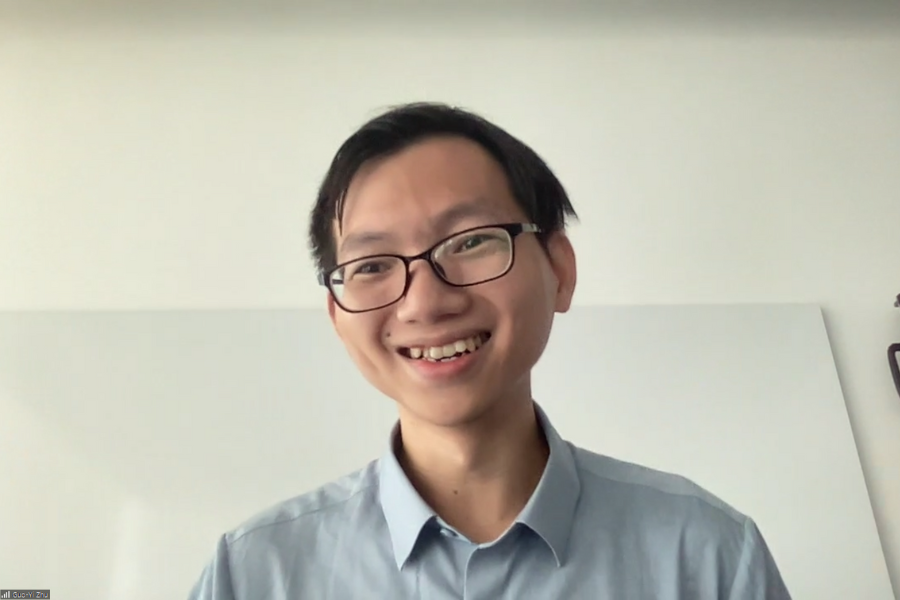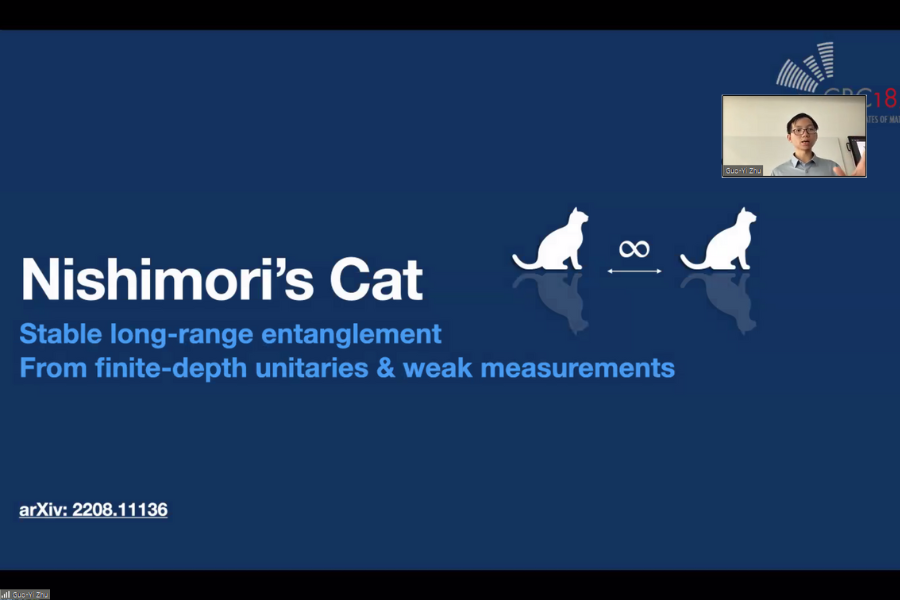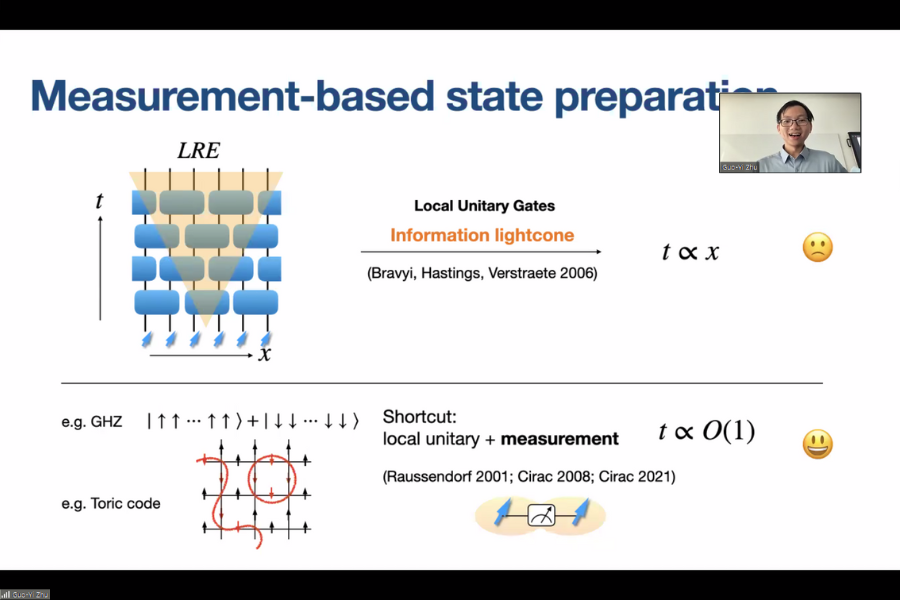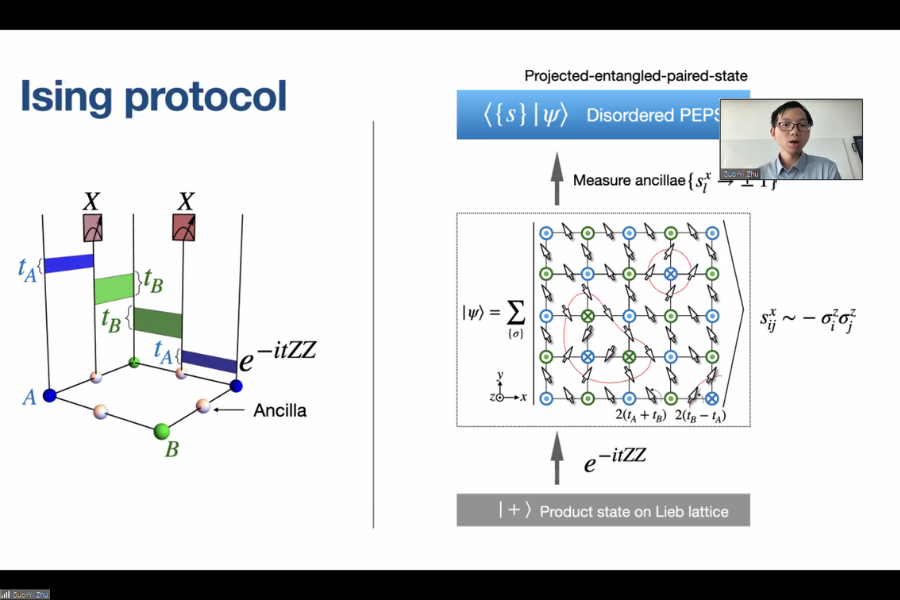Nishimori’s Cat: Stable Long-range Entanglement from Finite-depth Unitaries and Weak Measurements
Abstract
In the field of monitored quantum circuits, it has remained an open question whether finite-time protocols for preparing long-range entangled (LRE) states lead to phases of matter which are stable to gate imperfections. Here the speaker shows that such gate imperfections effectively convert projective into weak measurements and that, in certain cases, long-range entanglement persists, even in the presence of weak measurements and gives rise to novel forms of quantum criticality. He demonstrates this explicitly for preparing the two-dimensional (2D) GHZ cat state and the three-dimensional (3D) toric code as minimal instances. In contrast to previous studies on measurement-induced phases and transitions, their circuit of gates and measurements is deterministic; the only randomness is in the measurement outcomes. He shows how the randomness in these weak measurements allows him and his research group to track the solvable Nishimori line of the random-bond Ising model, rigorously establishing the stability of the glassy LRE states in two and three spatial dimensions. Away from this exactly solvable construction, they use hybrid tensor network and Monte Carlo simulations to obtain a non-zero Edwards-Anderson order parameter as an indicator of long-range entanglement in the 2D scenario. He argues that their protocol admits a natural implementation in existing quantum computing architectures, requiring only a depth-3 circuit on IBM’s heavy-hexagon transmon chips.
About the Speaker
Dr. ZHU Guo-Yi received his bachelor degree from the South China University of Technology in July 2014 and his PhD degree from Tsinghua University in July 2019. He has been a Postdoctoral Fellow at the Max Planck Institute for the Physics of Complex Systems from September 2019 to August 2021 and at the Institute for Theoretical Physics of the University of Cologne since September 2021. His research interests are long-range entangled topological states of matter, strongly correlated electrons, and some out-of-equilibrium quantum many-body dynamics.
For Attendees' Attention
This talk will be held online via Zoom and on-site at HKUST (GZ). To attend online, please join the Zoom meeting at https://hkust.zoom.us/j/97977560698 (Meeting ID: 979 7756 0698 / Passcode: 700226).






